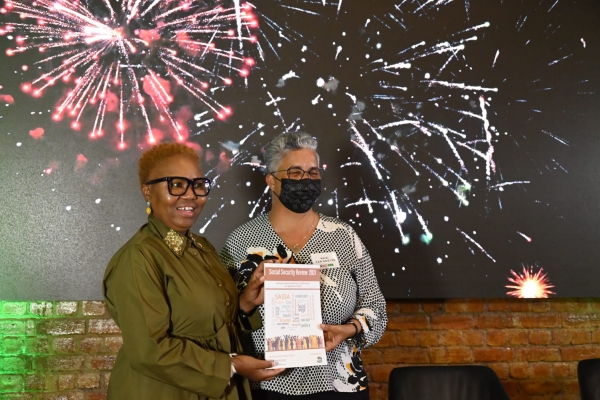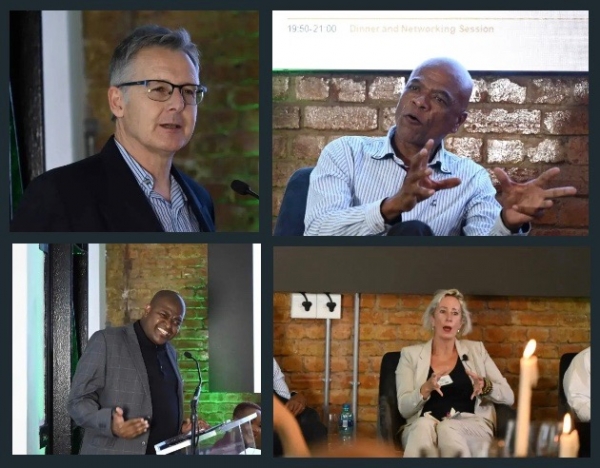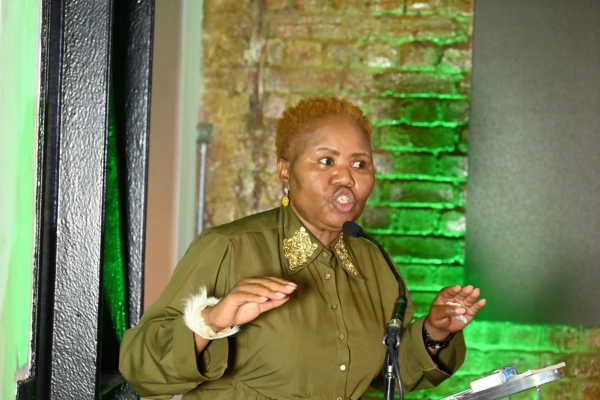Lindiwe Zulu recommits to basic income grant agenda at Social Security Review launch
DATE: 9 February 2022
AUTHOR: Andrea Teagle
At the launch of the Social Security Review 2021 on Tuesday, Minister of Social Development Lindiwe Zulu reiterated her commitment to keeping a basic income grant on the table, along with other measures to combat poverty and inequality. “It is about how we can bring dignity to our people… .When I was called and I was told 'you're starting something you are not going to finish', I said, ‘watch this space’,” Zulu recalled. “I'm still saying ‘watch this space’, even now.”
A Universal Basic Income Guarantee (UBIG) was one of the recommendations of the Social Security Review 2021 edited by the HSRC on behalf of the Department of Social Development (DSD). With ten contributing authors, the book considers social security in South Africa from historical, human rights, economic and policy viewpoints. Stakeholders from the government, business, civil society, and academia gathered at the launch to discuss ways of facilitating greater economic inclusion.
The speakers agreed that the human rights and the economic imperatives of a UBIG are not at odds; rather, that the former supports the latter; and, indeed, the rationale for economic growth is human welfare and human dignity. The view that social security is ‘bad’ – or that relying on social grants is a moral failing – reflects a particular and pervasive neoliberal ideology rather than a valid economic objection. Despite contentions that income grants lead to dependence, the evidence does not bear this out.

HSRC Deputy CEO Heidi van Rooyen hands over the Social Security Review 2021 to Minister Lindiwe Zulu at the launch of the publication at the GovChat offices in Cape Town on Tuesday, 8 February.
Photo: DSD
Contributing author Selwyn Jehoma noted that we need more education around social grants. We find many of the negative views about social security among poor communities, he said. “We’ve been conditioned – we’ve been told welfare is bad.”
In fact, equitable distribution of post-tax income is imperative to sustained economic growth, writes Alex van den Heever in the review. “Market economies in and of themselves are poor regulators of the fair distribution of income and wealth. In the absence of government interventions…societies become progressively more unequal and economically stratified.”
At the launch, contributing author Isobel Frye reminded the audience that Apartheid South Africa had a very good welfare state – for white people. South Africa’s social security system today is still based on a structure that was designed to support a minority population whose employment income was largely guaranteed. Frye recommended “a universal basic income to support from the cradle to the grave, but also which enables us as an economy to be growing.”
Van den Heever argued that poverty is a result of government policy that fails to distribute wealth equitably. He pointed out that, while we worry about people not deserving their salaries, we tend not to worry when people earn an income from assets, or when they inherit money not having earned it. “That distribution of income is sacrosanct in society.”
“What causes somebody to be in poverty? It's very often the institutions… the organisations that are set up to make decisions. And if they're poorly structured, you will have distortions in the society.”

Speaking at the launch: Clockwise from top left: the HSRC's Tim Hart, who co-edited the publication; contributing author Selwyn Jehoma; Act. Director General of Social Development Linton Mchunu; and contributing author Isobel Frye.
Photos: DSD
Structural changes
We need to interrogate the economic framework in our country, said Frye, echoing calls for a move away from an austerity framework. The speakers also emphasised that social security measures should be informed by community participation.
The speakers situated social security as part of a package of policy measures towards exclusive economic growth. While basic income grants allow people to access basic goods and services, thereby increasing demand, employment programmes and skills development help to increase supply of goods and services. “While supply-side approaches are important, they cannot succeed in the absence of measures that directly address the distribution of income and the structure of domestic demand,” writes Van den Heever.
Minister Zulu emphasised that government alone cannot do it – civil society, business and the government needed to co-operate and work together towards alleviating poverty and inequality in South Africa.

Minister of Social Development Lindiwe Zulu reiterated her commitment to keeping the basic income guarantee on the table.
Photo: DSD
Speakers from the business sector agreed that private-public partnerships could help to generate data-driven insights to inform targeted approaches to improving access to social security and employment opportunities. The private sector could also play a role in bridging the skills mismatch in South Africa.
Coming back to the issue of the basic income grant, Frye argued that more radical steps were needed to transform our economic structure. “We can’t do this softly-softly…My concern is that if we do too little, too slowly, we’re not going to see a return.”
The Social Security Review was edited by the HSRC on behalf of the Department of Social Development. Editors Shirin Motala, Stewart Ngandu and Tim Hart commended the DSD on championing the review as a flagship publication, promoting the generation of independent knowledge and thereby contributing to robust public policy discourse on social security.
You can read the Social Security Review here.

